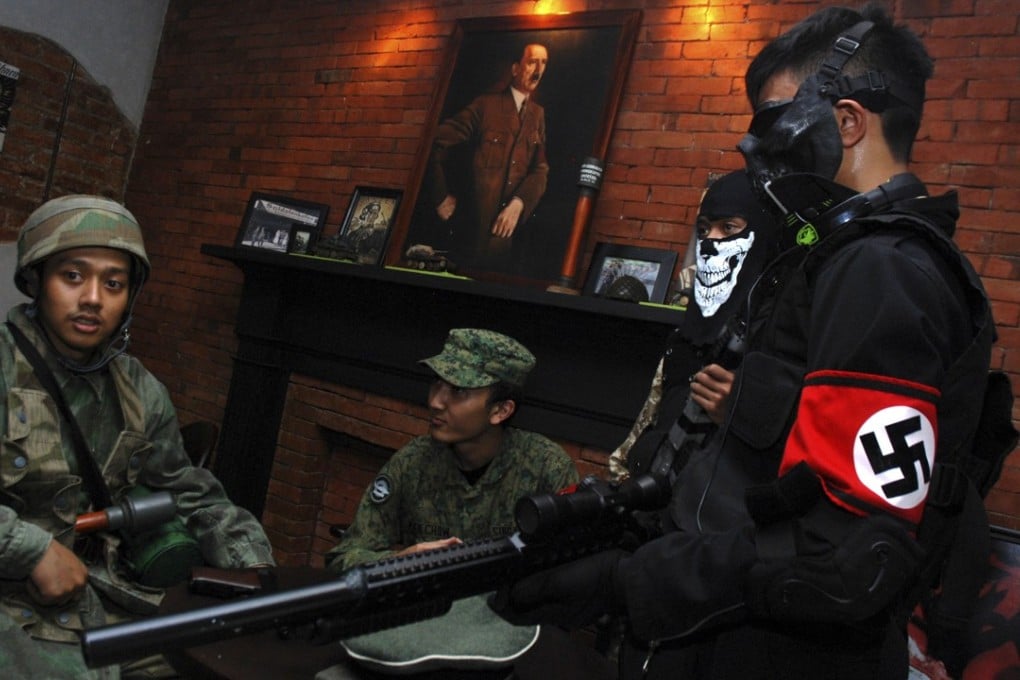How do Indonesians who dress as Hitler and Nazi soldiers justify their obsession?
Some Indonesians have no qualms showing respect for the strong image projected by Nazi Germany, saying it does not make them neo-Nazis. Are they just unable to fathom the horror of the time, or does the problem run deeper?

At his home in Surabaya – Indonesia’s second-largest city – Aris Setiawan had no idea that a heated debate about the rise of neo-Nazism was flaring up around the world.
The 25-year-old says he was unaware of the recent deadly clash in Charlottesville, in the US, where white supremacists marched bearing torches and Nazi flags and a woman was killed after a car ploughed into a group of counter protesters.
Why there’s nothing cool about the Nazi chic trend sweeping across Asia
A few months before the Charlottesville rally, Setiawan had won the “Judge’s Favourite Award” at a cosplay festival in his hometown. Cosplay – short for costume play – is a form of role-play made popular in Japan where people wear costumes inspired by their favourite comic or film characters. Setiawan’s costume wasn’t inspired by a fictional character, however. He won the award for dressing up as Adolf Hitler.
A post shared by aris si setia awan (@aris_si_setia_awan) on Sep 8, 2017 at 4:11am PDT
Images of Setiawan in his Nazi garb made the rounds on the internet. They showed a poker-faced Setiawan on stage, giving a Nazi salute while other festivalgoers, clad in fantasy attire, mimicked the gesture.
The festival committee faced heavy criticism and quickly removed all images of Setiawan from its website.
“I didn’t expect such controversy,” Setiawan says. He heard that the images appeared on websites overseas and had become an internet meme. “There was a lot of fuss around it, to the point that Facebook banned the images. But the thing is, what I did was not illegal.”
A post shared by aris si setia awan (@aris_si_setia_awan) on Mar 26, 2017 at 4:08pm PDT
Indonesia has no law banning the display of Nazi insignia. As such, some Indonesians have no qualms with showing their fascination for Hitler’s regime. Years before Setiawan’s cosplay act became famous on the internet, two similar incidents brought Indonesia unwanted international attention.